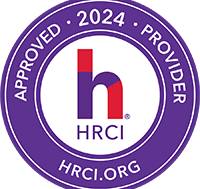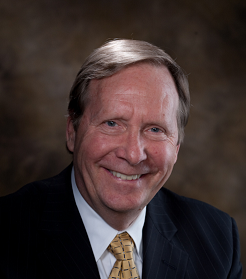September NOARK Membership Meeting
Categories: Membership Meeting

This Program has been approved for 0.99 HR (General) recertification credit hours toward aPHR™, aPHRi™, PHR®, PHRca®, SPHR®, GPHR®, PHRi™ and SPHRi™ recertification through HR Certification Institute® (HRCI®).
The use of this official seal confirms that this Activity has met HR Certification Institute’s® (HRCI®) criteria for recertification credit pre-approval.
“Immigration: Immigration Reform & Implications for HR Professionals"
Outline:
I. Brief History of US Immigration
- We are a nation of immigrations, shape by four waves of immigration
- We are in the 4th Wave—largest influx of immigrants in a century
- Midst of one of greatest demographic transitions in nation’s history
- Currently 80 million one-in-four people living in US are first and second generation immigrants
- Majority of children under 5 are minority—African American, Asians, and Hispanic
- In a generation, the majority of Americans will be from minorities
- Major impact on the workforce—over 90% of the growth of our workforce will come from the members of the 4th Wave and their children and grandchildren.
2. Changing Workforce
- Review of the data—immigrations indispensable for our nation’s economic wellbeing
- In the next 30 years, the vast majority of our nation’s workforce growth will be from 4th Wave immigrants and their children and grand children
- In a generation, the US will have the youngest and most dynamic workforce in the world because of immigration—compare to China, Japan, Russian, and Western Europe
- Immigrants Hour Glass Workforce—high or low skill with few in the middle skill jobs
- Challenges in the integration of the new workforce, tapping the talent
- Current and future economic impact of immigrants on the national economy
- HR challenges
3. Immigration Law
- Review of Comprehensive Immigration Legislation
- Federal and State DREAM Acts, and Deferred Action for Childhood Arrivals (DACA)
- DACA a powerful tool for workforce development/challenges for the HR professional
- Reality of 11 million undocumented in our communities and states--need for comprehensive immigration reform
- Economic costs/benefits of undocumented
4. Assimilation and Integration of Immigrants
- EngageNWA (co-sponsored by Walmart and Tyson)
- Cisneros Center’s American Dream Initiative
- Goals of initiatives and importance to Northwest Arkansas Community

SPEAKER--Dr. William "Bill" Schwab
William Schwab, Ph.D. is a university professor in the Department of Sociology and Criminal Justice. Named dean of the Fulbright College of Art and Sciences in July of 2008, he completed his appointment in 2011 and returned to the sociology faculty.
Schwab served as associate dean of Fulbright College from 1993 to 1998 and was chair of the sociology and criminal justice department twice, from 1989 to 1993 and from 1998 to 2008. He has written four books and numerous articles, papers and technical reports, and has received research grants totaling more than $2.5 million. The University of Arkansas Press published his newest work, Right to DREAM: Immigration Reform and America’s Future, in March, 2013.
Prior to his appointment as dean, Schwab served as professor, department chair and associate dean. His contributions at the national level include work with organizations such as the National Science Foundation, the U.S. Department of Housing and Urban Development, and the Office of University Partnerships in the U.S. State Department. He also has served as an international development consultant in Bolivia and, for the past 15 years, Jordan for the U.S. Agency for International Development.
His research areas of specialization include urban ecology, community and demography, with interests in urban change on the neighborhood level, economic development in the less developed world and cultural resource management. He has been studying Northwest Arkansas’ Hispanic community since 2007, and has focused his research on undocumented children and youth since 2011. His newest book reports the findings of this research.
Schwab has a baccalaureate degree in chemistry and master's degrees in both urban planning and sociology. He earned his doctoral degree in sociology from Ohio State University in 1976 and joined the University of Arkansas faculty the same year.
